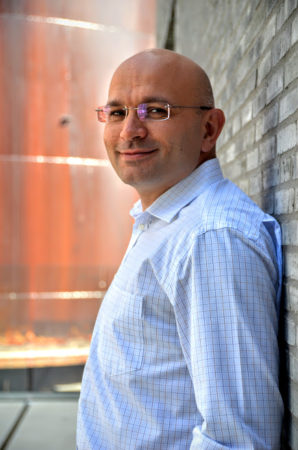 In an increasingly digital world, in which the Internet of Things, geolocation or the social web are taking up more and more space, it is no longer necessary to demonstrate how precious data is for an entire economy. The value of data – be it economic, social, educational, meteorological or geographical – is considerable.
In an increasingly digital world, in which the Internet of Things, geolocation or the social web are taking up more and more space, it is no longer necessary to demonstrate how precious data is for an entire economy. The value of data – be it economic, social, educational, meteorological or geographical – is considerable.
Unlike raw materials, data can be reused over and over again (principle of non-rivalry). The public service collects huge amounts of centralised data which, if properly used, can lead to innovative solutions: traffic monitoring, information about the availability of rented bicycles in the city centre, real-time air quality, and so on.
Entitled BE-GOOD (Building an Ecosystem to Generate Opportunities for Open Data), the Interreg North-West Europe project was launched in 2016 by the European Commission for a four-year period. It is based on the EU’s Public Sector Information Directive 2013 on the reuse of public sector information.
Given that the public sector holds large quantities of data that are sometimes not widely used, BE-GOOD wishes to improve access to this data, while stimulating its reuse.
Availability, reuse and universal participation are the very essence of the Open Data concept. By definition accessible to all and free of rights, open data offer many opportunities to expand knowledge and create new quality products and services.
Transnational collaborations
Cooperation is another fundamental criterion for deriving benefits from open data. It is in this context that the BE-GOOD project takes on its full meaning. By bringing together several European players, including the Luxembourg Institute of Science and Technology (LIST), the project promotes the emergence of new products and services through cross-border collaborative projects.
LIST acts as a technical partner. In charge of methodological and technical issues, it advises the other partners on data opening, business models and innovative tenders authorised by the new European directive.
“We have been involved in discussions around Open Data since 2012 and have observed a lot of how it is done in other countries. When the opportunity to participate in the BE-GOOD project came, we took it in order to test and apply what we thought were good practices,” explains Slim Turki, BE-GOOD Program Manager at LIST.
Data is often processed by companies in a different way compared to other resources. Hence LIST’s contribution to knowledge sharing to bridge the gap between theory and practice. This approach makes it possible to move from innovative research to the testing of a prototype in a real situation. “We are committed to the project until May 2020. Currently two thirds of the way through the programme, we collect feedback from each partner for each different phase in order to constantly adjust and improve the methodology and procedures,” says Slim Turki.
Encouraging innovation through data
Within the consortium, LIST also has the task of facilitating closer links between the partners. According to Slim Turki, the project team plays a horizontal role within the IT for Innovative Services (ITIS) department. “We support the development of sustainable public-private partnerships. Our knowledge of the problems raised by civil servants enables us to provide concrete solutions that will hopefully flow from the development of prototypes in the very near future.”
LIST was able to rely on its in-depth knowledge of the Luxinnovation ecosystem to target companies potentially interested in taking part in these discussions. As an unfunded partner, Luxinnovation supports the initiative. “Open data is an important theme, particularly in view of a new ecosystem that revolves around digital in itself and the reuse of data in particular,” explains Jean-Paul Hengen, Manager of the Luxembourg ICT Cluster at Luxinnovation. “This project is part of the government’s strategy and is actively supported by several important actors, such as Digital Lëtzebuerg, the State Information Technology Centre and the Information and Press Service. The latter also contributed to the implementation of the national Open Data portal, in collaboration with the Geoportal team of the Land Registry and Topography Administration.”
These same actors are also at the origin of the “Open Data” challenge organised as part of the hackathon “Game of Code“, a major annual event dedicated to the development of applications, software or algorithms based on the reuse of open data available on the portal.
In total, the BE-GOOD project has 11 challenges, led by the various partners, mainly related to the themes of transport, wastewater management, infrastructure maintenance, mobility and quality of life. By March 2019, all partners should finalise the calls for tenders and have concluded the contracts with the selected companies for each challenge.
By the end of the BE-GOOD project, workshops to identify the interest and potential of the solutions developed for Luxembourg will be organised. The next working group will be held on 25 January and will focus on the reuse of open data on mobility and transport in Luxembourg.
Upon completion, the BE-GOOD project is expected to deliver 10 commercial and transnational prototypes, valued at an estimated €50 million. According to a recent study by the European Commission’s Digital Single Market section, in 2018, the total direct economic value of public sector information in the EU28 is €52 billion. This figure is expected to rise to 194 billion by 2030.

